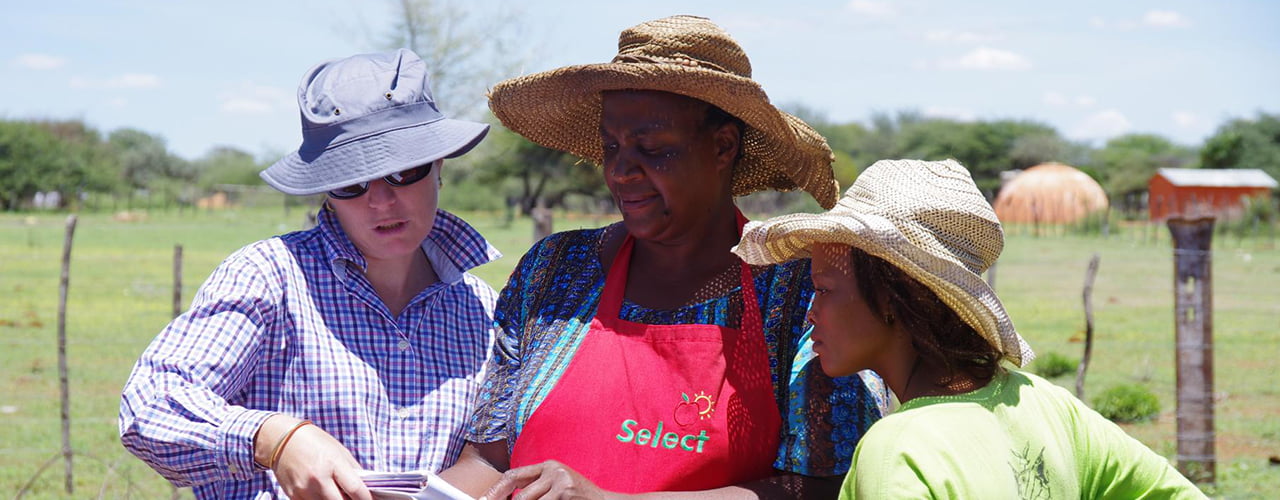
A new EEP Africa study, Energising Resilience, explores the climate adaptation and resilience co-benefits achieved through early-stage clean energy projects.
Enhancing access to clean energy is generally approached through the lens of climate change mitigation. However, the potential for clean energy to support climate adaptation and resilience is robust and, in some cases, stronger than the linkage to mitigation. The portfolio analysis conducted for this report found numerous examples of climate co-benefits at community and household levels.
The lead researcher for the EEP Africa study, Julia Larkin, noted that,
Discussions about linkages are often at the policy level, not on the level of what’s working or not working on the ground. But many developers are already naturally evolving towards projects with increased climate co-benefits as they explore more viable business models and look at the local needs.
The adaptation and resilience areas particularly well represented in the EEP Africa portfolio are:
Promoting agricultural resilience and strengthening local value chains through clean energy irrigation, cold chain, food processing and preservation.
Building local self-reliance and resilient infrastructure through clean energy for municipalities, households, local production and transportation.
The analysis in this study shows that investments in clean energy are likely to provide climate co-benefits, with a vital need for risk-tolerant financing for innovation, testing, and demonstration. It is also important for developers and financiers to consider the full context of a project, including the long-term supply chain viability and local community needs, to identify synergies and design climate-proof energy concepts and business models. This is critical for reducing the risk of maladaptation that simply shifts the problem elsewhere or locks in suboptimal infrastructure improvements.
The study finds that climate adaptation and resilience co-benefits achieved at individual and community levels support planning at national and regional levels. However, climate needs far outstrip the funding available so a more holistic approach to climate funding is needed. Policymakers and financiers must recognize the synergies between mitigation and adaptation, and leverage resources to achieve multi-faceted projects that promote long-term environmental, social, and economic sustainability.
The findings from the EEP Africa study were fully aligned with the new Strategy 2025 of the Nordic Development Fund (NDF), which has an increased focus on adaptation and supporting resilient societies, and a recent global study on Private Markets for Climate Resilience.
One of the NDF contributors to that report, Isabel Leroux, participated in the launch of Energising Resilience during the EEP Africa Knowledge Week. She emphasized that both reports examine what the private sector is doing in developing markets in terms of climate resilience and notes that,
A huge amount of capital needs to be mobilized to tackle negative climate impacts and public action alone is not sufficient. The private sector has an important role in scaling solutions, products and technologies, and there is an actual business opportunity in developing new market segments. Investments towards resilience increase business value and produce positive returns for companies, financiers and investors.
Energising Resilience includes six case studies that highlight the achievements of companies supported by EEP Africa in producing climate resilience co-benefits through clean energy. These include:
- SunCulture: Solar Rain Makers Enhance Food Security
- InspiraFarms: Cold Chain technology Reduces Food Loss
- Sistema.bio: Dung to Table: Biodigesters for Sustainable Farming and Cooking
- Ensol: Mini-grid Bringing Light, Life and Opportunity
- Acacia Innovations: Cleaner Air in Schools While Saving Trees
- OffGridBox: Versatile Hubs for Solar Energy and Clean Water
Read these case studies and the full report at Energising Resilience.


